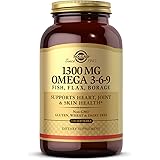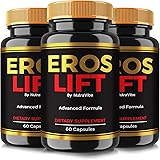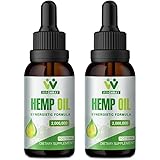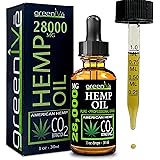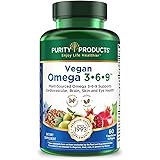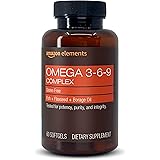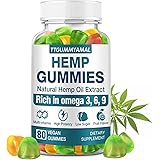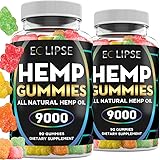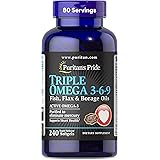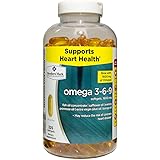The world of natural wellness often introduces terms that sound similar yet represent vastly different products. As the video above succinctly highlights, one such area of common confusion lies in distinguishing between hemp seed oil and CBD oil. While both originate from the versatile hemp plant, their extraction methods, chemical compositions, and intended uses diverge significantly. Understanding these fundamental distinctions is crucial for anyone looking to incorporate these natural compounds into their health regimen, ensuring they select the product that truly aligns with their wellness goals.
Historically, the hemp plant has been cultivated for thousands of years, providing fibers for textiles, building materials, and nutritional components. In recent decades, however, the focus has shifted towards its potent extracts, particularly those rich in cannabinoids like cannabidiol (CBD). This renewed interest has unfortunately led to a conflation of terms, causing many consumers to mistakenly believe that all “hemp oil” is the same. Untangling these differences requires a closer look at what each product truly is, how it’s made, and what it offers.
Understanding Hemp Seed Oil: A Nutritional Powerhouse
Hemp seed oil is a culinary and cosmetic staple, celebrated for its rich nutritional profile. Firstly, this oil is extracted exclusively from the seeds of the hemp plant, typically through a cold-pressing method similar to how olive oil is produced. Imagine if you were to press an avocado for its oil; this process is analogous, preserving the delicate nutrients within the hemp seeds themselves. The seeds are thoroughly cleaned and then mechanically pressed, yielding a greenish-yellow oil with a mild, nutty flavor.
Secondly, the primary appeal of hemp seed oil lies in its exceptional fatty acid composition. It boasts an ideal ratio of Omega-6 to Omega-3 essential fatty acids, generally around 3:1, which is considered optimal for human health. Furthermore, this oil is a rich source of gamma-linolenic acid (GLA), an Omega-6 fatty acid known for its anti-inflammatory properties. Beyond healthy fats, hemp seed oil contains various vitamins, including E and B vitamins, and minerals like magnesium, potassium, and zinc, making it a valuable addition to a balanced diet.
Consequently, its uses are predominantly nutritional and topical. People often drizzle hemp seed oil over salads, blend it into smoothies, or use it as a finishing oil for cooked dishes. On the skincare front, its moisturizing and nourishing properties make it a popular ingredient in lotions, balms, and hair products. Crucially, hemp seed oil contains negligible, if any, cannabinoids like CBD or THC, meaning it does not interact with the body’s endocannabinoid system in the same way that CBD oil does.
Delving into CBD Oil: A Cannabinoid-Rich Extract
In contrast, CBD oil is a much more complex extract, primarily valued for its cannabinoid content. This oil is derived from the stalks, leaves, and flowers of the hemp plant, which are the parts rich in cannabinoids, terpenes, and flavonoids. Imagine the plant as a pharmaceutical factory, where these specific parts hold the most potent compounds we seek. Sophisticated extraction methods, such as CO2 extraction or ethanol extraction, are employed to pull these compounds from the plant material.
Firstly, the most significant component of CBD oil is cannabidiol (CBD) itself, a non-intoxicating cannabinoid. Unlike hemp seed oil, CBD oil is specifically formulated to deliver these active plant compounds to the body. Depending on the extraction and refinement process, CBD oil can come in several forms: full-spectrum, broad-spectrum, or isolate. Full-spectrum CBD oil contains all the naturally occurring compounds of the hemp plant, including other cannabinoids (like trace amounts of THC, typically below 0.3%), terpenes, and flavonoids, which work synergistically in what’s known as the “entourage effect.”
Secondly, broad-spectrum CBD oil contains a similar array of compounds but has undergone an additional process to remove all detectable THC. This option is popular among those who want to avoid THC entirely while still benefiting from other plant compounds. Lastly, CBD isolate is the purest form of CBD, containing 99% pure cannabidiol with all other plant materials removed. The primary use of CBD oil revolves around its potential therapeutic benefits, which many users report include support for mood regulation, stress response, and a general sense of balance within the body.
Key Distinctions: Hemp Seed Oil vs. CBD Oil
Understanding the core differences between hemp seed oil and CBD oil is paramount for making informed wellness choices. One crucial distinction lies in their source and composition. Hemp seed oil comes solely from the seeds, lacking cannabinoids, while CBD oil is extracted from the plant’s flowers, leaves, and stalks, where cannabinoids are concentrated. This fundamental difference dictates their respective benefits and applications in health and wellness.
1. **Source and Extraction Method:** Hemp seed oil is produced by cold-pressing hemp seeds, yielding a nutrient-rich culinary oil. CBD oil, conversely, is extracted from the aerial parts of the hemp plant (flowers, leaves, stalks) using more advanced methods like CO2 or ethanol extraction to isolate cannabinoids. Imagine a chef using a simple press for olive oil versus a scientist using complex machinery to distill essential oils; the processes are fundamentally different.
2. **Cannabinoid Content:** The most significant divergence is the presence of cannabinoids. Hemp seed oil contains no CBD or other cannabinoids; its value is purely nutritional, stemming from its fatty acids, vitamins, and minerals. CBD oil, on the other hand, is specifically rich in CBD, along with other beneficial cannabinoids, terpenes, and flavonoids, depending on whether it’s full-spectrum, broad-spectrum, or isolate. This cannabinoid profile is what enables CBD oil to interact with the body’s endocannabinoid system.
3. **Primary Uses and Benefits:** Hemp seed oil is primarily used as a nutritional supplement, a food ingredient, and in skincare products, celebrated for its Omega fatty acids and moisturizing properties. Its benefits are tied to general nutrition and skin health. CBD oil is sought after for its potential therapeutic effects, such as supporting mood regulation, promoting calm, aiding in sleep, and contributing to overall homeostasis. Imagine if you wanted to nourish your body with healthy fats versus targeting specific internal systems for balance; your choice would depend on this distinction.
4. **Psychoactive Properties:** This is often the point of greatest confusion. Hemp seed oil is entirely non-psychoactive and will not produce any intoxicating effects. CBD oil is also non-psychoactive, meaning it will not get you “high,” unlike THC. Even full-spectrum CBD oil contains only trace amounts of THC (less than 0.3%), which is insufficient to cause psychoactive effects. This clarifies that neither product will lead to intoxication, addressing a common concern.
The Endocannabinoid System and CBD’s Role in Homeostasis
The video briefly touches upon CBD’s ability to help the brain and body achieve “homeostasis,” a state of balance. This concept is deeply rooted in the functioning of our endocannabinoid system (ECS), a complex cell-signaling system identified in the early 1990s. Imagine the ECS as the master regulator of your body, constantly working to maintain internal stability amidst external changes. It plays a vital role in regulating a wide range of physiological processes, including mood, sleep, appetite, pain sensation, immune response, and stress.
The ECS consists of three main components: endocannabinoids (cannabinoids produced by your body), receptors (CB1 and CB2 receptors found throughout the body), and enzymes (that break down endocannabinoids). When your body is out of balance, the ECS kicks into action, producing endocannabinoids to restore equilibrium. CBD interacts with this system indirectly, influencing the receptors and enzymes without directly binding to them. This interaction is believed to be how CBD helps support the ECS in its efforts to maintain optimal body function.
For instance, regarding mood regulation and stress response, CBD is thought to influence serotonin receptors in the brain, contributing to a sense of calm and well-being. Imagine if your body’s stress alarm system was overly sensitive; CBD might help to modulate that response, allowing for a more balanced reaction to daily stressors. Furthermore, by supporting the ECS, CBD helps the body adapt and respond appropriately to various internal and external challenges, fostering the overall balance and harmony that define homeostasis. This intricate interplay makes CBD oil a unique and powerful tool in holistic wellness.
Making an Informed Choice: Selecting Your Hemp Product
Given the distinct attributes of hemp seed oil and CBD oil, making an informed purchasing decision is crucial for achieving your desired wellness outcomes. Your choice should always align with your specific health goals, whether you’re seeking nutritional benefits or targeting internal system support. Understanding product labels and sourcing information becomes particularly important in a market with varying quality standards and product claims, ensuring you get exactly what you expect from your purchase.
Firstly, if your primary interest is in a nutritious culinary oil rich in Omega fatty acids and vitamins for general health or skincare, then hemp seed oil is your ideal choice. Look for products that specify “cold-pressed” and “unrefined” on their labels to ensure maximum nutrient retention. These oils are typically found in the cooking oil or health food sections of grocery stores and are a straightforward addition to your diet. Their benefits are well-established for supporting cardiovascular health, brain function, and skin vitality through essential nutrient intake.
Secondly, if you are looking to support your body’s endocannabinoid system for potential benefits like mood regulation, stress response, or promoting a sense of calm and balance, then CBD oil is the product you should consider. When selecting CBD oil, prioritize products that provide third-party lab test results (Certificates of Analysis, or COAs). These reports confirm the cannabinoid content, including CBD and THC levels, and verify the absence of harmful contaminants like pesticides, heavy metals, and residual solvents. This transparency is key to ensuring product purity and potency, crucial aspects for any effective CBD oil.


